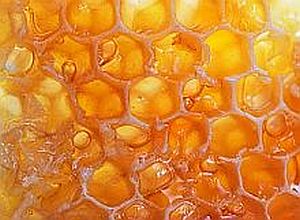Honey was superior to usual care for the improvement of symptoms of upper respiratory tract infections (URTIs), a University of Oxford study found.
The Guardian reports honey may be better than conventional treatments for coughs, blocked noses and sore throats, The substance is cheap, readily available, and has virtually no side-effects. Doctors can recommend it as a suitable alternative to antibiotics, which are often prescribed for such infections, even though they are not effective, scientists from the University of Oxford said.
Upper respiratory tract infections (URTIs) affect the nose, throat, voice box and the large air passages (bronchi) that lead from the windpipe to the lungs. There is evidence for honey being used in children, and it has long been used as a home remedy to treat coughs and colds. But the evidence for its effectiveness for a range of upper respiratory tract symptoms in adults has not been systematically reviewed.
However, the researchers, Hibatullah Abuelgasim, of the Oxford University Medical School, and Charlotte Albury and Joseph Lee, of the Nuffield Department of Primary Care Health Sciences, noted that honey is a complex substance and not a uniform product. They also pointed out that only two of the studies involved a placebo, saying more such studies need to be done before definitive conclusions can be reached.
The authors said: “Upper respiratory tract infections are the most frequent reason for antibiotic prescription. Since the majority of URTIs are viral, antibiotic prescription is both ineffective and inappropriate.”
Abstract
Background: Antibiotic over prescription for upper respiratory tract infections (URTIs) in primary care exacerbates antimicrobial resistance. There is a need for effective alternatives to antibiotic prescribing. Honey is a lay remedy for URTIs, and has an emerging evidence base for its use. Honey has antimicrobial properties, and guidelines recommended honey for acute cough in children.
Objectives: To evaluate the effectiveness of honey for symptomatic relief in URTIs.
Methods: A systematic review and meta-analysis. We searched Pubmed, Embase, Web of Science, AMED, Cab abstracts, Cochrane Library, LILACS, and CINAHL with a combination of keywords and MeSH terms.
Results: We identified 1345 unique records, and 14 studies were included. Overall risk of bias was moderate. Compared with usual care, honey improved combined symptom score (three studies, mean difference −3.96, 95% CI −5.42 to −2.51, I2=0%), cough frequency (eight studies, standardised mean difference (SMD) −0.36, 95% CI −0.50 to −0.21, I2=0%) and cough severity (five studies, SMD −0.44, 95% CI −0.64 to −0.25, I2=20%). We combined two studies comparing honey with placebo for relieving combined symptoms (SMD −0.63, 95% CI −1.44 to 0.18, I2=91%).
Conclusions: Honey was superior to usual care for the improvement of symptoms of upper respiratory tract infections. It provides a widely available and cheap alternative to antibiotics. Honey could help efforts to slow the spread of antimicrobial resistance, but further high quality, placebo controlled trials are needed.
Authors
Hibatullah Abuelgasim, Charlotte Albury, Joseph Lee
[link url="https://www.theguardian.com/science/2020/aug/19/honey-better-treatment-for-coughs-and-colds-than-antibiotics-study-clams"]Full report in The Guardian[/link]
[link url="https://ebm.bmj.com/content/early/2020/07/28/bmjebm-2020-111336"]BMJ Evidence Based Medicine abstract[/link]

